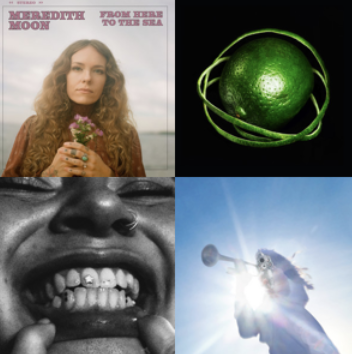Daudi Matsiko has reframed sadness, and not enough people are hearing him do it.
Daudi Matsiko is a singer-songwriter from Nottingham, UK. His January album titled The King of Misery is a proverbial insight into misery. Daudi addresses struggling with a sense of self with lyrics and melodies artists can only dream of constructing. His instrumentals hone simplicity with a focus of acoustic guitar, amplified by intermittent saxophone flourishes, vocal distortions, and piano backings. The experimental aspects of his music are comparable to Sufjan Stevens’ Carrie and Lowell or Seven Swans, both in musicality and heartbreaking lyricism.
For example, in the lyric “Scared to admit my heart has expired. If I say that I do, will it mean that I lose?” Daudi questions his reality. He does this many times throughout this album, but especially in the song “Fool Me As Many Times As You Like”. His constant retrospective anecdotes develop an ode to melancholy existentialism unlike anything centering depression I have heard.
Matsikos’ repetitive but intricate guitar riffs are folksy, perfectly paired with his authentically vulnerable lyrics and mirrored voice. I was thinking of how this album is so touching even for someone who has never experienced the levels of sorrow Matsiko describes. I found the answer to the albums’ emotional poignancy through my current college experience.
The minds of college students can long for the elsewhere a campus provides. A bubble of like minded individuals, the party that plays all the music you’re listening to. It’s so important to reframe who you are outside of that specific comfortability, or lack of.
Daudi explores the process of forgetting who you are in the track “I Am Grateful For My Friends”
“I had swimming lessons as a child. I hope I still remember.” He goes on to repeat the title of the song, reaffirming his thankfulness to his friends, the people who remind him who he is.
Friendship can be a community but especially within a college campus. The understanding that people want you around, even in your distance, can be a solace to all who listen to this album.
Daudi speaks of his troubles ample times throughout his second album. His two ending tracks lean towards a light at the end of the tunnel. Daudi sings “There’s a hope inside me” on the ninth song, leaving room for a glimmer of progress from the earlier songs on the album.
The King of Misery – a.k.a. Daudi Matsiko – has created an album that I am sure will stand the test of time as a beautiful addition to the contemporary folk genre.





